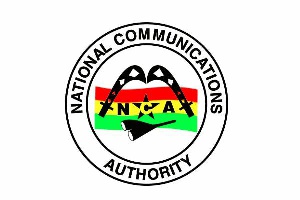Accra, Aug.16, GNA - Stakeholders on Monday attended a workshop to validate and make further inputs into the Draft National Urban Policy to help find local solutions to the increasing challenges of urban development in the country.
The Policy, when passed into law, would serve as a comprehensive document to give a clearer focus on urban development and management in the country.
Mr. Elvis Afriyie-Ankrah, Deputy Minister of Local Government and Rural Development (MLGRD), addressing the opening session in Accra, said urbanisation had become a global phenomenon which was inevitable and irreversible therefore, the need to urgently discuss its accompanying challenges was critical to help fashion out pragmatic and workable policies towards the nation's urban development.
The Deputy Minister said currently poor planning of the nation's urban settlements and the continuous sprawling of others without adequate infrastructure had made them very expensive to manage and unsustainable in the long term.
He said the situation should no longer be encouraged and advocated for the establishment of mechanisms for ensuring that development of the urban centres were well coordinated to warrant the efficient functioning of the settlements within businesses.
Mr. Afriyie-Ankrah urged participants to address issues including how inhabitants' needs and values would be expressed when changes were made to their urban physical environment, how to achieve a positive generative impact between urban and rural areas, developing decision-making processes as a communicative instrument for the various actors and the reasons for ineffective enforcement of laws on urban development in the Districts.
He said it was Government's policy to use urbanisation as a catalyst for economic growth, socio-cultural improvement and enhancement as well as environmental sustainability, yet the tremendous population growth rate of about 4.6 per cent in the nation's urban centres posed great danger to the realisation of such objectives.
"It is estimated that Ghana's population would reach 25 million by the end of 2010 of which more than 50 per cent would live in urban areas", adding, the situation could either represent a tremendous development potential and opportunities as well as problems and challenges, as cities and towns could become systems that could contribute positively to development and at the same time act as engines of growth such as the Asian "tigers" experienced ", he said.
Mr. Afriyie-Ankrah however, expressed worry about Ghana's own situation saying despite the advantages of urbanisation, cities and towns could also be liabilities and centres of crime, environmental hazard and mass under and unemployment if they were as a result of spontaneous, unplanned and uncontrollable socio-economic activities.
He indicated that urban development was a cross-cutting activity and needed the coordination and collaboration of all stakeholders to ensure practical answers to the challenges facing the nation.
Nii Armah Ashitey, Greater Accra Regional Minister, said a National Urban Policy would eliminate duplication of functions, ensure proper coordination among Government Ministries Departments and Agencies (MDAs) as well as the District Assemblies and promote enforcement of the various laws concerning urbanisation in the country.
He challenged stakeholders to prepare to take responsibility for any future problems if they failed to take giant steps and come out with an acceptable framework to guide the nation in achieving the goal of sustainable national development of human settlement.
Regional News of Monday, 16 August 2010
Source: GNA
















